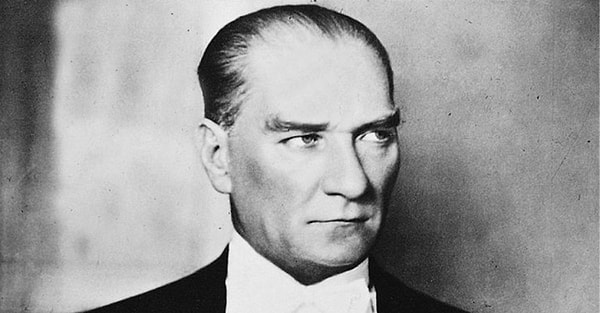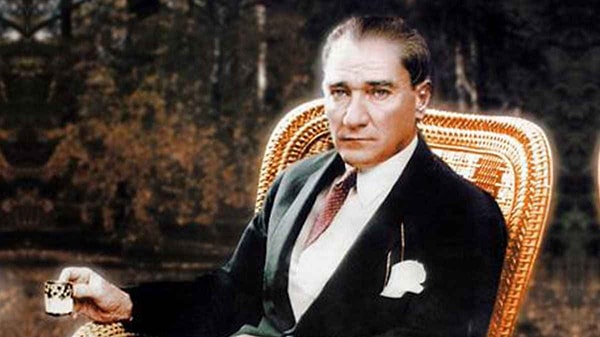Mustafa Kemal Atatürk, born in 1881 in Salonica (present-day Thessaloniki, Greece), stands as a prominent figure in Turkish history and a visionary leader who laid the foundation for the modern Turkish Republic. As the founder and first president of Turkey, Atatürk spearheaded a comprehensive program of reforms, known as Kemalism or Atatürkism, aimed at transforming Turkey into a secular, democratic, and modern nation-state. This article delves into the life and accomplishments of Atatürk, exploring his pivotal role in shaping Turkey's political, social, and cultural landscape, and his enduring legacy that continues to shape the nation to this day.
Mustafa Kemal Atatürk: The Architect of Modern Turkey

Atatürk's Early Life and Military Career:

Mustafa Kemal Atatürk, originally named Mustafa, was born into a middle-class family. He received a military education at the prestigious Ottoman Military Academy, where he demonstrated remarkable leadership qualities and strategic thinking. Atatürk's military career soared during World War I, where he emerged as a highly respected officer and played a crucial role in various battles, including the famous Battle of Gallipoli. This experience not only shaped his military prowess but also instilled in him a deep sense of nationalism and a desire to liberate Turkey from foreign powers.
The Turkish War of Independence and the Birth of the Republic:

Following the collapse of the Ottoman Empire after World War I, Mustafa Kemal Atatürk led the Turkish War of Independence against occupying Allied forces and Greek forces. Through a series of military victories and astute political maneuvering, Atatürk rallied the Turkish people behind the cause of independence, culminating in the establishment of the Republic of Turkey on October 29, 1923. Atatürk became the country's first president, embarking on an ambitious journey to reshape the nation.
The Reforms of Atatürk:
Atatürk's primary objective was to transform Turkey into a modern, secular, and democratic state. He introduced a series of far-reaching reforms that targeted various aspects of Turkish society, including politics, education, law, and culture. Atatürk initiated the secularization of the country by abolishing the Caliphate, separating religion from the state, and replacing Islamic law with a civil legal system based on European models. He implemented the Hat Law, which banned traditional Islamic headgear and encouraged the adoption of Western-style attire.
Atatürk's educational reforms aimed to establish a standardized and secular education system accessible to all citizens. He prioritized literacy and initiated campaigns to eradicate illiteracy by making education compulsory and accessible to both genders. Atatürk also promoted the equality of women and granted them voting rights ahead of many Western nations at the time. Through these reforms, he sought to empower women and elevate their role in society.
The modernization efforts extended to language and script. Atatürk replaced the Arabic script with the Latin alphabet, simplifying the writing system and enabling broader access to education and communication. This move also symbolized a break from the Ottoman past and a shift towards a more Western-oriented identity.
Legacy and Impact:
The impact of Atatürk's reforms on Turkish society cannot be overstated. He laid the groundwork for a secular and democratic republic that has endured for nearly a century. Atatürk's focus on education and modernization set Turkey on a path of development and progress. His emphasis on national identity fostered a sense of unity among the diverse Turkish population and created a shared cultural heritage. Atatürk's legacy is evident in the physical infrastructure of Turkey, with numerous statues, monuments, and public buildings dedicated to him across the country. The image of Atatürk is widely displayed in schools, government offices, and public spaces, symbolizing his revered status as the father of the nation.
Beyond his domestic reforms, Atatürk's foreign policy aimed to establish Turkey as a respected player on the global stage. He sought to modernize Turkey's relationships with other countries, forging new alliances and fostering diplomatic ties. Atatürk advocated for neutrality and non-alignment, positioning Turkey as a bridge between East and West. His efforts to maintain peace and stability in the region were crucial during a time of geopolitical turmoil.
Atatürk's influence goes beyond the borders of Turkey
His ideas and principles have inspired leaders and reformers in other countries, particularly in the Muslim world. His emphasis on secularism, modernization, and education has served as a model for those seeking to navigate the challenges of balancing tradition with progress.
However, Atatürk's legacy is not without controversy and ongoing debates. Some criticize his authoritarian tendencies and argue that his reforms were implemented top-down without sufficient popular participation. Others believe that his vision of a secular Turkey is under threat in recent years, as there have been debates about the role of religion in public life.
Nonetheless, Atatürk's enduring influence can be observed in Turkey's vibrant democracy, its strong institutions, and its ongoing commitment to progress and modernization.
His principles of secularism, nationalism, and reform continue to shape the political and social fabric of Turkey.
In conclusion, Mustafa Kemal Atatürk was a visionary leader who left an indelible mark on Turkish history. Through his unwavering determination, military prowess, and progressive reforms, he transformed Turkey from a crumbling empire into a modern and secular republic. Atatürk's legacy is reflected in the country's political institutions, education system, and cultural identity. His ideas and principles continue to shape the nation's trajectory, and his enduring influence extends beyond Turkey's borders. Mustafa Kemal Atatürk remains an iconic figure, revered as the architect of modern Turkey and a symbol of resilience, progress, and national pride.

